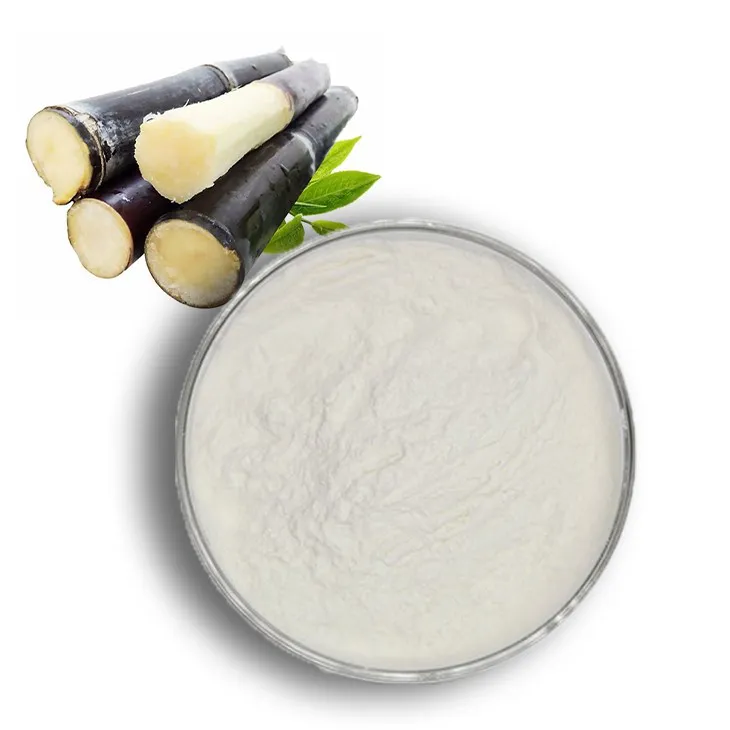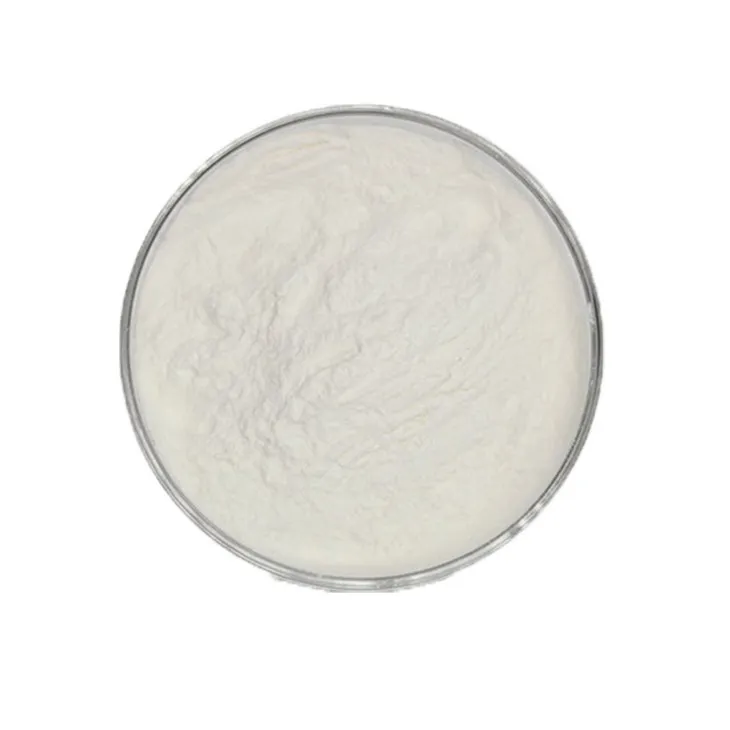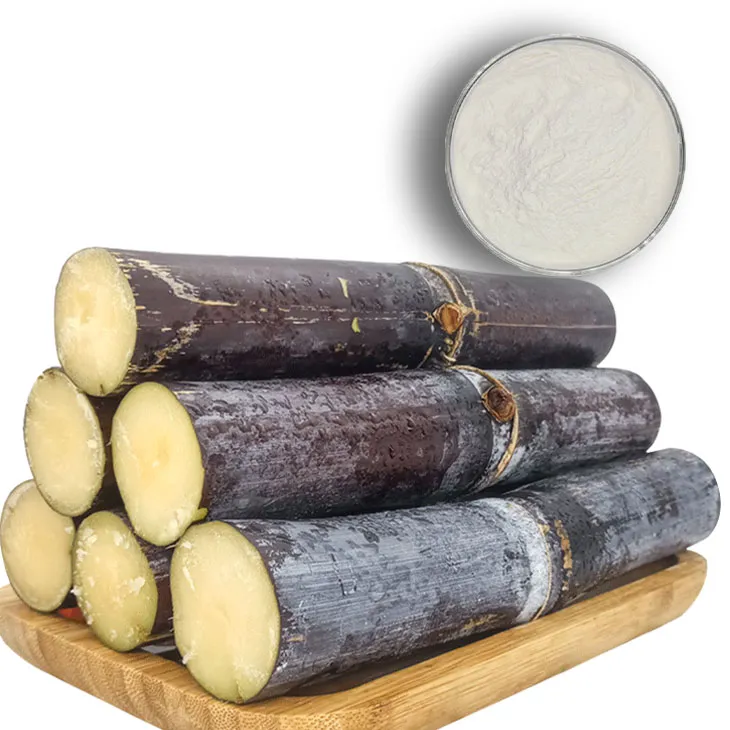- 0086-571-85302990
- sales@greenskybio.com
Does sugarcane extract have benefits for diabetes? Are these all safe and suitable for diabetic patients?
2024-11-12

1. Introduction
Diabetes is a chronic metabolic disorder characterized by high blood sugar levels. Management of diabetes often involves dietary modifications, exercise, and sometimes medications. Sugarcane, a widely - cultivated plant, is known for its sweet juice. However, the role of Sugarcane Extract in diabetes is a complex topic that requires in - depth analysis from various aspects such as medical research, potential side - effects, and practical usage.

2. Medical Research on Sugarcane Extract and Diabetes
2.1 Nutritional Components in Sugarcane Extract
Sugarcane extract contains various components. Polyphenols are one of the important substances present. These polyphenols have antioxidant properties. In some studies, antioxidants have been associated with a reduced risk of developing diabetes - related complications such as cardiovascular diseases. The presence of certain minerals like potassium in sugarcane extract may also play a role in maintaining normal physiological functions. Potassium is important for proper heart and muscle function, which can be beneficial for diabetic patients who are at a higher risk of heart problems.
2.2 Effects on Blood Glucose Regulation
Some research has suggested that certain compounds in sugarcane extract may have an impact on blood glucose regulation. For example, there are some preliminary studies indicating that specific polysaccharides in sugarcane may help in improving insulin sensitivity. Insulin sensitivity is crucial for diabetic patients as it determines how effectively the body can use insulin to regulate blood sugar levels. However, it should be noted that these studies are often in the early stages, and more comprehensive and large - scale research is needed to confirm these findings.
2.3 Anti - inflammatory Properties
The polyphenols in sugarcane extract are believed to possess anti - inflammatory properties. Chronic inflammation is associated with the development and progression of diabetes. By reducing inflammation, sugarcane extract might potentially contribute to better management of diabetes. For instance, in vitro studies have shown that these polyphenols can inhibit the production of certain inflammatory cytokines. Nevertheless, translating these in vitro findings to real - life applications in diabetic patients remains a challenge.

3. Side - Effects of Sugarcane Extract
3.1 High Sugar Content in Natural Sugarcane Juice
The most obvious concern with sugarcane extract, especially in its natural juice form, is its high sugar content. Sugarcane juice is rich in sucrose, which can cause a rapid increase in blood glucose levels when consumed in large amounts. This is clearly not suitable for diabetic patients who need to tightly control their blood sugar levels. For example, if a diabetic patient drinks a large glass of pure sugarcane juice, it may lead to hyperglycemia, which can have immediate and long - term negative impacts on their health.
3.2 Allergic Reactions
Some individuals may be allergic to components in sugarcane extract. Allergic reactions can range from mild symptoms such as skin rashes and itching to more severe manifestations like difficulty in breathing and anaphylactic shock. Although allergic reactions to sugarcane are relatively rare, they should not be ignored. Diabetic patients with known allergies need to be especially cautious when considering the use of sugarcane extract.
3.3 Contamination and Purity Issues
If the sugarcane extract is not properly processed, there may be contamination risks. For example, it could be contaminated with pesticides, heavy metals, or microorganisms. These contaminants can cause various health problems, especially in diabetic patients who may have a weakened immune system. Additionally, the purity of the extract may vary depending on the extraction method, and impurities can potentially interact with medications or exacerbate existing health conditions.

4. Practical Usage of Sugarcane Extract for Diabetic Patients
4.1 Modified Sugarcane Extract Products
There are some modified sugarcane extract products available in the market. These products claim to have reduced sugar content while retaining the beneficial components. For example, some sugarcane - based supplements are formulated to have a lower glycemic index. Diabetic patients may consider these products, but they should still consult their healthcare providers before use. It is important to note that the regulatory status of such products may vary, and not all claims may be supported by scientific evidence.
4.2 Incorporating Small Amounts in a Balanced Diet
In some cases, a very small amount of sugarcane extract may be incorporated into a diabetic patient's diet under strict medical supervision. For instance, a few drops of a highly - purified sugarcane extract may be added to a beverage or food. However, this should be done with extreme caution, and the patient's blood sugar levels should be closely monitored. This approach may be considered when the potential benefits, such as the antioxidant or anti - inflammatory effects, are thought to outweigh the risks associated with the small amount of sugar content.

5. Conclusion
In conclusion, the relationship between sugarcane extract and diabetes is complex. While there are some potential benefits suggested by medical research, such as antioxidant, anti - inflammatory, and possible blood glucose - regulating effects, there are also significant concerns regarding side - effects, especially the high sugar content in natural sugarcane juice, allergic reactions, and contamination risks. Diabetic patients should approach the use of sugarcane extract with great caution. If they are considering using any form of sugarcane extract, it is essential that they consult their healthcare providers to ensure that it is safe and appropriate for their individual health conditions.
FAQ:
Question 1: What are the potential benefits of sugarcane extract for diabetes according to medical research?
Some studies suggest that certain components in sugarcane extract may have antioxidant properties. Antioxidants can help reduce oxidative stress in the body, which is often elevated in diabetic patients. However, it's important to note that the direct impact on blood sugar regulation is not yet fully established. There are also some early findings indicating that specific bioactive compounds in sugarcane might play a role in improving insulin sensitivity, but more research is needed to confirm this.
Question 2: Are there any known side - effects of sugarcane extract for diabetic patients?
While sugarcane extract may contain beneficial components, it also contains natural sugars. Excessive consumption could potentially lead to a spike in blood sugar levels, which is obviously not desirable for diabetic patients. Additionally, some people may be allergic to components in sugarcane extract, which can cause allergic reactions such as skin rashes, itching, or in severe cases, difficulty breathing.
Question 3: How can diabetic patients use sugarcane extract in a practical way?
If diabetic patients want to consider using sugarcane extract, they should first consult their doctor. If approved, it should be used in moderation. For example, if it is in the form of a supplement, they should follow the recommended dosage strictly. It should not be used as a substitute for diabetes medications. And continuous monitoring of blood sugar levels is essential to ensure that it does not have an adverse effect on blood glucose control.
Question 4: Is there enough evidence to prove that sugarcane extract is safe for all diabetic patients?
No, there is not enough evidence. Diabetes is a complex condition with different subtypes and individual variations. While some diabetic patients may tolerate sugarcane extract well, others may not. Factors such as overall health, other medications being taken, and the specific type and severity of diabetes all play a role in determining whether it is safe for an individual diabetic patient.
Question 5: Can sugarcane extract replace traditional diabetes treatments?
Definitely not. Current traditional diabetes treatments, such as insulin therapy and oral hypoglycemic agents, have been extensively studied and proven effective in managing blood sugar levels. Sugarcane extract has not been shown to have the same level of efficacy in controlling diabetes. It may at best be considered as a complementary approach, but only under strict medical supervision.
Related literature
- The Role of Antioxidants in Diabetes: A Review of Sugarcane - Derived Compounds"
- "Sugarcane Extract and Insulin Sensitivity: Current Research Findings"
- "Potential Side - Effects of Natural Extracts in Diabetic Patients: A Focus on Sugarcane"
- ▶ Hesperidin
- ▶ citrus bioflavonoids
- ▶ plant extract
- ▶ lycopene
- ▶ Diosmin
- ▶ Grape seed extract
- ▶ Sea buckthorn Juice Powder
- ▶ Beetroot powder
- ▶ Hops Extract
- ▶ Artichoke Extract
- ▶ Reishi mushroom extract
- ▶ Astaxanthin
- ▶ Green Tea Extract
- ▶ Curcumin Extract
- ▶ Horse Chestnut Extract
- ▶ Other Problems
- ▶ Boswellia Serrata Extract
- ▶ Resveratrol Extract
- ▶ Marigold Extract
- ▶ Grape Leaf Extract
- ▶ blog3
- ▶ blog4
- ▶ blog5
-
Organic Tongkat Ali extract powder factory.
2024-11-12
-
How to make powder with ashwagandha extract.
2024-11-12
-
Rosehip extract manufacturers from China.
2024-11-12
-
The best cat's claw extract in nature.
2024-11-12
-
Chinese Dandelion Leaf Extract Suppliers.
2024-11-12
-
Panax Ginseng Leaf Extract
2024-11-12
-
Passionflower Extract
2024-11-12
-
Chasteberry Extract
2024-11-12
-
Medicinal Marshmallow Extract
2024-11-12
-
Cocoa Extract
2024-11-12
-
Yellow Pine Extract
2024-11-12
-
Green Tea Extract
2024-11-12
-
Green coffee bean Extract
2024-11-12
-
Echinacea Extract
2024-11-12
-
Giant Knotweed Extract
2024-11-12





















